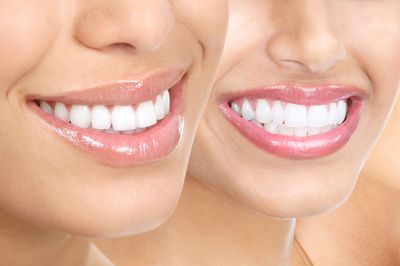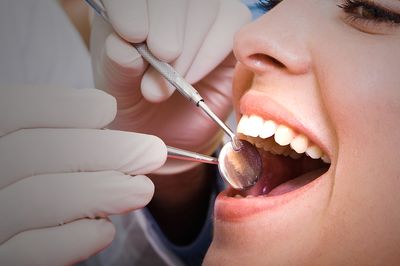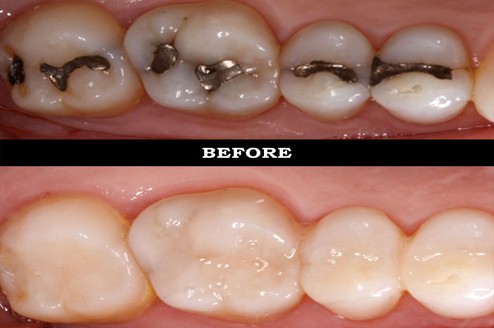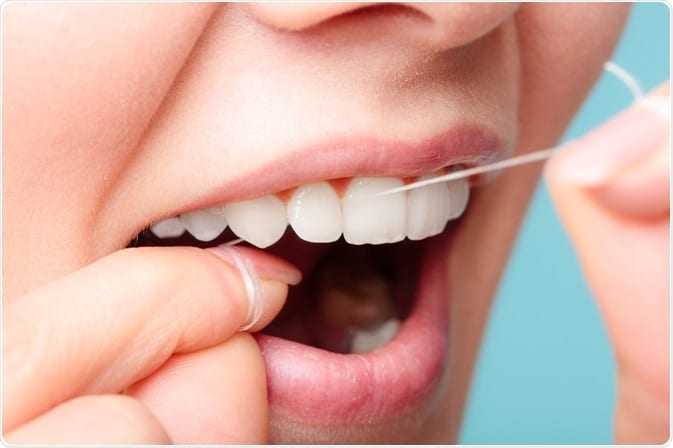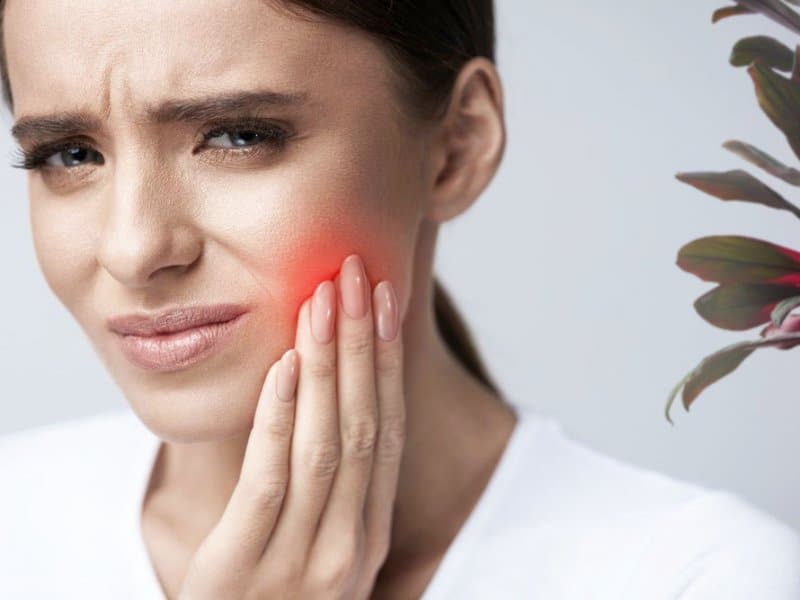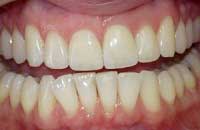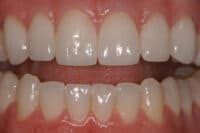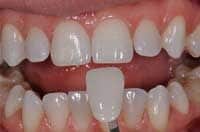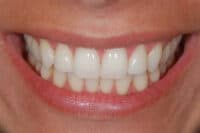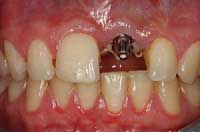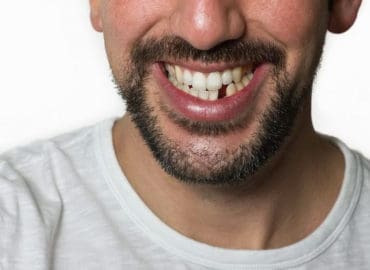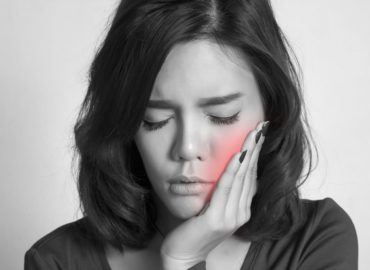10,000 +
Happy patients
85 +
Years of Combined Doctor Experience
1 150 +
5 star Google and Yelp Reviews
40
Years of Stellar Dental Service in Los Angeles
Meet The Doctors
Dr. Kezian’s mission is to provide our patients the very best dental care in the most caring, supportive, and nurturing manner possible. We also believe in promoting long-term dental-health through focusing on cosmetic dentistry in Los Angeles, dental implants, and root canal treatment using the most superior treatment available. To that end, we employ highly-qualified dental professionals and utilize leading-edge technologies. We listen carefully to our patients, and partner with them to maintain their dental health. Our focus on aesthetic and cosmetic techniques further supports this commitment to provide the best overall long-term dental care, and to enable our patients to look and feel their best. Choose Dr. Arthur A. Kezian DDS, for all your cosmetic dentist needs in Los Angeles, root canal therapy, dental implants, dental veneers, teeth whitening. Give us a call today, you deserve it, (323) 467-2777.

Dr. Arthur Kezian
Surgical – Cosmetic – Restorative
Dr. Arthur Kezian is an award winning and renowned dentist. As a graduate of UCLA Dental School, he earned The Doctor of Dental Surgery degree in 1983. Bachelor of Science in Biochemistry from UCLA in 1979. He was a faculty member in both departments. Dr Kezian is an authoritative and a published dentist in the areas of Cosmetic, Surgical and Implant dentistry and …
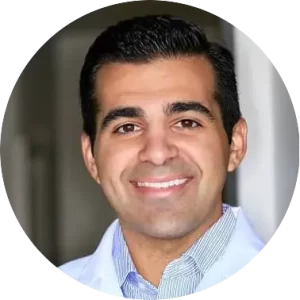
Dr. Michael Kezian
Cosmetic – Root Canal – Restorative
Dr. Michael Kezian, a Los Angeles Cosmetic Dentist, is a graduate of the prestigious University of the Pacific Arthur A. Dugoni School of Dentistry where earned The Doctor of Dental Surgery degree. Prior he earned his Bachelor of Arts in Applied Sciences from Thomas J. Long School of Pharmacy and Health Sciences.

Dr. Steven Kezian
Cosmetic – Restorative – Pediatric
Dr. Steven Kezian, a dentist in Los Angeles, also graduated from UOP School of Dentistry in 2020. He obtained his Bachelor of Science degree from UCLA in the field of Neuroscience, and chose to pursue his Masters of Science in Biomedical Research at Western University of Health Sciences prior to dental school. This academic background has fueled a passion for clinical innovation and a focus on evidence-based dentistry.
Our Dental Services
Porcelain Veneers
Porcelain laminate veneers are probably the most esthetic means of creating a more pleasing and beautiful smile.
Dental Implants
Dental implants may be an option for people who have lost one or more teeth due to to various reasons.
Cosmetic Bleaching
The most effective procedure for whitening your teeth. Everyone wants sparkling white teeth.
Root Canal Therapy
Eliminate pain, repair and save your tooth, and protect the tooth from future infections.
White Dental Fillings
White dental fillings, also called composite fillings, are tooth-colored restorations used to repair decayed or damaged teeth discreetly.
Gum Treatments
Dental gum treatment aims to address gum diseases, like gingivitis and periodontitis, through professional cleanings and therapies.
Emergency Dentistry
Emergency dentistry provides immediate dental care for urgent issues, such as severe pain, injury, or infections, ensuring prompt relief.
Digital Dentistry
Digital dentistry employs advanced technology, like digital imaging and CAD/CAM, for precise, efficient, and innovative dental solutions.
Why Choose Us
7 Reasons To Visit Our Office:
- Expertise: Dr. Arthur Kezian conveys the authority and expertise of the dental profession with over 40 year of experience.
- Comprehensive Services: They offer a wide range of dental services, from routine check-ups to advanced procedures.
- State-of-the-Art Technology: The office is equipped with cutting-edge dental technology for accurate diagnosis and effective treatments.
- Patient-Centered Care: They prioritize patient comfort and tailor treatments to individual needs, ensuring a positive experience.
- Exceptional Reputation: The reputation for over 40 years in this community is one of trustworthiness and excellent service, as evidenced by the offices abundant and glowing reviews.
- Friendly Staff: Patients appreciate the warm and trustworthy atmosphere, making visits stress-free and enjoyable.
- Convenient Location: The office is conveniently located, making it accessible and hassle-free for patients to schedule appointments.
100% Fully Vaccinated Dental Staff
We’re operating with 100% fully vaccinated dental staff, but we understand that many are hesitant to take this step. Although COVID-19 restrictions are not as rigorous as they first were, we should not forget that we’re still living through a pandemic and one of the best things we can do right now is to get vaccinated.
Click to Find Out More
Updated Coronavirus Protocols for Emergency Dental Services
Dr. Arthur A. Kezian and his office staff members are dedicated to maintaining the highest level of safety and protection during the limited reopening of his dental office during the Covid-19 crisis with updated emergency dental services and protocols. We all feel it is our direct responsibility to protect our patients, our staff, and our community. We would like to share with our patients the updated dental emergency coronavirus protocol changes and new protocols we have implemented in our dental office.
Click to Find Out More
Patient Reviews
Rated 5 out of 5 stars based on 1156 Google & Yelp reviews.
 Cris DB3/28/2025The first time I went to Kezian Dentistry it was for an emergency. I got an appointment the same day I called. I was so happy about the visit that I decided to entrust my dental needs to the Kezian doctors. They are outstanding and the staff is absolutely great. I felt comfortable and in very good hands. I highly recommend Kezian Dentistry. I went there very recently for a check up. I had a tooth decay. Dr Steven helped me right away even though his schedule was very busy. Thanks!read moreread less
Cris DB3/28/2025The first time I went to Kezian Dentistry it was for an emergency. I got an appointment the same day I called. I was so happy about the visit that I decided to entrust my dental needs to the Kezian doctors. They are outstanding and the staff is absolutely great. I felt comfortable and in very good hands. I highly recommend Kezian Dentistry. I went there very recently for a check up. I had a tooth decay. Dr Steven helped me right away even though his schedule was very busy. Thanks!read moreread less Laura3/24/2025I found this place randomly after breaking a molar on a cocoa nib (stay away from those things!) They were able to make an emergency appointment to see me the next day. Dr. Steven Kezian sorted my tooth out with a conservative and cosmetically pleasing approach that I appreciate a lot. I’m uninsured but he was able to bring the price down a little bit to something totally reasonable. He also has a really friendly and caring bedside manner. Even though my appointment was made last minute I didn’t feel my treatment was rushed at all and he took the time to explain every step to me. All in all, even though my dental accident was unfortunate I’m glad it led me to this practice which I will continue to go to for any of my dental needs!read moreread less
Laura3/24/2025I found this place randomly after breaking a molar on a cocoa nib (stay away from those things!) They were able to make an emergency appointment to see me the next day. Dr. Steven Kezian sorted my tooth out with a conservative and cosmetically pleasing approach that I appreciate a lot. I’m uninsured but he was able to bring the price down a little bit to something totally reasonable. He also has a really friendly and caring bedside manner. Even though my appointment was made last minute I didn’t feel my treatment was rushed at all and he took the time to explain every step to me. All in all, even though my dental accident was unfortunate I’m glad it led me to this practice which I will continue to go to for any of my dental needs!read moreread less Brittany Beane3/24/2025Let’s start with the family practice vibes. Ten out of ten for inviting and warm atmosphere. Not only that, but my original appointment was scheduled with one of their offices at another location (which isn’t open on Saturdays), but I called them and said I actually needed to come in sooner given my level of pain and they got me in on a Saturday at their sister office. Since they’re a family operation, the offices work together to meet your scheduling needs! My experience: Dr. Kezian fixed my broken crown (gave me a great temporary while we wait for the permanent crown to be made) and gave me a filling on another tooth all within an hour and a half. He was thorough, efficient, and communicative throughout the process. He’s also very responsive to how comfortable or uncomfortable you are during the “drilling” portions of the process! Did I mention this was my FIRST VISIT EVER with him? I have been to many dentists over the years and can already tell the quality of his work will prevent me from going back again and again for the same problem, so I’m actually excited to go back and have the permanent crown put in - and who gets excited about dental work!? Highly recommend the Kezian practice to anyone looking for a great dentist!read moreread less
Brittany Beane3/24/2025Let’s start with the family practice vibes. Ten out of ten for inviting and warm atmosphere. Not only that, but my original appointment was scheduled with one of their offices at another location (which isn’t open on Saturdays), but I called them and said I actually needed to come in sooner given my level of pain and they got me in on a Saturday at their sister office. Since they’re a family operation, the offices work together to meet your scheduling needs! My experience: Dr. Kezian fixed my broken crown (gave me a great temporary while we wait for the permanent crown to be made) and gave me a filling on another tooth all within an hour and a half. He was thorough, efficient, and communicative throughout the process. He’s also very responsive to how comfortable or uncomfortable you are during the “drilling” portions of the process! Did I mention this was my FIRST VISIT EVER with him? I have been to many dentists over the years and can already tell the quality of his work will prevent me from going back again and again for the same problem, so I’m actually excited to go back and have the permanent crown put in - and who gets excited about dental work!? Highly recommend the Kezian practice to anyone looking for a great dentist!read moreread less Briana Lee3/23/2025I’ve been a long time patient of Dr. Kezian’s dental clinic in Larchmont, Los Angeles. The first time I walked in, I was greeted by the warm and friendly staff who made me feel right at home. The clinic itself is clean, modern, and comfortable, making each visit a pleasant experience. The team is professional, knowledgeable, and takes the time to explain every procedure, which gave me a lot of confidence in my treatments. I’ve gotten numerous cleanings done, x-rays, fillings, and a custom night guard. You can really feel the personal touch in every aspect of care – from the detailed consultations to the follow-up calls to make sure you're doing well. This is the best dental clinic I’ve been to in California.read moreread less
Briana Lee3/23/2025I’ve been a long time patient of Dr. Kezian’s dental clinic in Larchmont, Los Angeles. The first time I walked in, I was greeted by the warm and friendly staff who made me feel right at home. The clinic itself is clean, modern, and comfortable, making each visit a pleasant experience. The team is professional, knowledgeable, and takes the time to explain every procedure, which gave me a lot of confidence in my treatments. I’ve gotten numerous cleanings done, x-rays, fillings, and a custom night guard. You can really feel the personal touch in every aspect of care – from the detailed consultations to the follow-up calls to make sure you're doing well. This is the best dental clinic I’ve been to in California.read moreread less Emi Curtmola3/23/2025I recently visited Dr. Kezian's Office for the first time, and I couldn’t be more impressed! From the moment I walked in, the staff made me feel welcome and comfortable. The office was clean and had a relaxing atmosphere. Dr. Tashjian was incredibly knowledgeable and took the time to explain everything clearly, making sure I felt at ease throughout my visit. The entire team was professional, friendly, and attentive to my needs. It’s not often that you actually enjoy a trip to the dentist, but Dr Tashjian made the experience pleasant and stress-free. I’m so glad I found them and will definitely be returning for all my dental care needs. Highly recommend!read moreread less
Emi Curtmola3/23/2025I recently visited Dr. Kezian's Office for the first time, and I couldn’t be more impressed! From the moment I walked in, the staff made me feel welcome and comfortable. The office was clean and had a relaxing atmosphere. Dr. Tashjian was incredibly knowledgeable and took the time to explain everything clearly, making sure I felt at ease throughout my visit. The entire team was professional, friendly, and attentive to my needs. It’s not often that you actually enjoy a trip to the dentist, but Dr Tashjian made the experience pleasant and stress-free. I’m so glad I found them and will definitely be returning for all my dental care needs. Highly recommend!read moreread less Carlos Sanchez Hernandez3/16/2025I feel like a celebrity when I walk in because of the attention of Dr Steven and his staff. They are literally the best. They have the softest touch. They go the extra mile to not only walk you through what’s going on but also show you before and after. I love the attention to detail. I LOVE THIS DENTISTRY. The fact that is family owned is the cherry on top.read moreread less
Carlos Sanchez Hernandez3/16/2025I feel like a celebrity when I walk in because of the attention of Dr Steven and his staff. They are literally the best. They have the softest touch. They go the extra mile to not only walk you through what’s going on but also show you before and after. I love the attention to detail. I LOVE THIS DENTISTRY. The fact that is family owned is the cherry on top.read moreread less Saskia Wilson-Brown3/08/2025Yesterday, Dr. K performed an extremely complicated wisdom tooth extraction in 15 minutes, tops. I was freaked out of my gourd for weeks anticipating the procedure, but he made it feel like no big deal. I remain, as I always have been, very very impressed with Dr. K's mastery. He's the Da Vinci of teeth! The folks at this office are very good at what they do. They've saved teeth that other dentists have told me were unsavable. They've expertly managed and replaced my two veneers. I found myself, a few years ago, actually looking forward to a root canal: I knew that in their hands, it would be easy. Dr. K., Dr. Mike, Dr. Steve, the wonderful Dr. Narine, and the entire team is just fantastic, and this is why they've been my entire family's dentists for more than two decades.read moreread less
Saskia Wilson-Brown3/08/2025Yesterday, Dr. K performed an extremely complicated wisdom tooth extraction in 15 minutes, tops. I was freaked out of my gourd for weeks anticipating the procedure, but he made it feel like no big deal. I remain, as I always have been, very very impressed with Dr. K's mastery. He's the Da Vinci of teeth! The folks at this office are very good at what they do. They've saved teeth that other dentists have told me were unsavable. They've expertly managed and replaced my two veneers. I found myself, a few years ago, actually looking forward to a root canal: I knew that in their hands, it would be easy. Dr. K., Dr. Mike, Dr. Steve, the wonderful Dr. Narine, and the entire team is just fantastic, and this is why they've been my entire family's dentists for more than two decades.read moreread less Joshua Corey2/22/2025Dr. Tashjin has always been so good to me, I’m so lucky to have found this dentist. They’re always good about giving me lots of novocaine when I ask (I’m a baby) and working with me on cost/insurance so I can afford the work I need. They’ve always patiently fixed a chipped tooth of mine a couple times, on short notice. Can’t recommend enough.read moreread less
Joshua Corey2/22/2025Dr. Tashjin has always been so good to me, I’m so lucky to have found this dentist. They’re always good about giving me lots of novocaine when I ask (I’m a baby) and working with me on cost/insurance so I can afford the work I need. They’ve always patiently fixed a chipped tooth of mine a couple times, on short notice. Can’t recommend enough.read moreread less James Alford2/22/2025Drs. Arthur and Michael Kazian are exceptional at their craft, professional, courteous, amiable and caring towards my first recommended visit I pay it forward by encouraging anyone in need or in search of a qualified dentist to do the same; the staff was equally friendly, polite, professional and caring. I was totally at ease in their care and will absolutely follow through with their next recommended appointment and suggest that anyone reading this follows suit by doing the same.read moreread less
James Alford2/22/2025Drs. Arthur and Michael Kazian are exceptional at their craft, professional, courteous, amiable and caring towards my first recommended visit I pay it forward by encouraging anyone in need or in search of a qualified dentist to do the same; the staff was equally friendly, polite, professional and caring. I was totally at ease in their care and will absolutely follow through with their next recommended appointment and suggest that anyone reading this follows suit by doing the same.read moreread less Ryan2/13/2025Incredible dentist! I chipped my front tooth at the gym on a Saturday morning. After some quick google magic I found Dr. Kezian, and not only was he able to take me in same day and get it done, he also had time for a cleaning (it had been like 10 years since my last dentist appt.) and a diagnosis of all my cavities. He set up a treatment plan for me same day. I have been back probably 5 times since to address my many cavities, some of them very deep and hard to fill and it is always a pleasure. Great staff, great dentist, family vibes. I especially like how he shows photos of the cavity filling process: beginning, after cleaning out decay, and after fill. If you're in LA, especially if your'e new here and worried about finding an honest, good dentist, this is your guy! Thanks Doctor!read moreread less
Ryan2/13/2025Incredible dentist! I chipped my front tooth at the gym on a Saturday morning. After some quick google magic I found Dr. Kezian, and not only was he able to take me in same day and get it done, he also had time for a cleaning (it had been like 10 years since my last dentist appt.) and a diagnosis of all my cavities. He set up a treatment plan for me same day. I have been back probably 5 times since to address my many cavities, some of them very deep and hard to fill and it is always a pleasure. Great staff, great dentist, family vibes. I especially like how he shows photos of the cavity filling process: beginning, after cleaning out decay, and after fill. If you're in LA, especially if your'e new here and worried about finding an honest, good dentist, this is your guy! Thanks Doctor!read moreread less
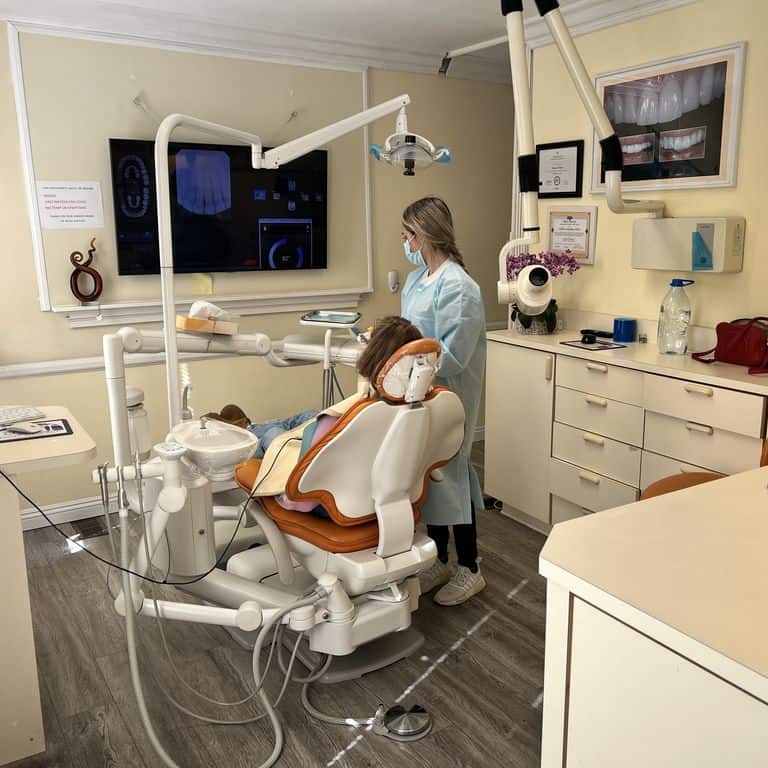
Emergency Dentist in Los Angeles
Dr. Arthur Kezian, a reputed implant dentist in Los Angeles, is known for state-of-the-art dental care facilities and quality dental services. Dr. Kezian is a UCLA trained implant dentist, with over 1000 hours of implantology. We have been attending to needs of dental implant patients in and around Los Angeles for several years. We are the first of its kind emergency dental care that specializes in handling all kind of dental implants. Call us or fill up the booking form now if you want us to extend help in any of the above mentioned dental implant needs.
FAQs
What should I do if I have a Dental Emergency?
A dental emergency can happen at any time and anywhere. Types of dental emergencies can be caused by an impact to the mouth and include, chipped teeth, knocked out teeth, or loose teeth sometimes even a tooth abscess. It is vital that in the event of a dental emergency, one should visit their Dentist right away. If you are looking for an emergency dentist in Los Angeles, please call Dr. Arthur A. Kezian.
What do Dental Veneers cost?
Porcelain laminate veneers are probably the most esthetic means of creating a more pleasing and beautiful smile. They require a minimal amount of tooth reduction and are, therefore, a more conservative restoration than a crown. Traditional porcelain veneers cost between $925 and $2,500 per tooth, but can last between 10 and 15 years. Composite veneers cost about $250 to $1500 per tooth, and can last from five to seven years.
When Can I schedule my next dental appointment?
To maintain a good oral health, the American Dental Association suggests having a regular oral exam every six months. The best way to ensure you return for your next check-up is to schedule your next appointment before you leave the dentist office.
How to replace a missing tooth with Dental Implants?
Dental implants can help you if you want to replace one or more missing or damaged teeth. Dental implants offer numerous benefits. Missing teeth can greatly affect the quality of your life and so does loose and ill fitting dentures. Dental Implants are very tiny titanium posts that are placed into the jawbone where the teeth have gone missing. Choosing the best dentist for your dental implants is crucial to get the best value for your money and for results that can last a lifetime.
Latest Dental News & Articles
7 Important Services Provided by a Los Angeles Dentist
Why Go to a Los Angeles Dentist Now? Cosmetic dentistry is what will offer you the smile that you have […]
Types of Dental Implants in Los Angeles
Missing teeth can lower self-confidence, hold you from smiling, and cause serious dental health problems. So it's necessary to replace […]
What to Do if You Have a Weekend Dental Emergency
What to Do if You Have a Weekend Dental Emergency A dental emergency is scary any day of the week, […]



